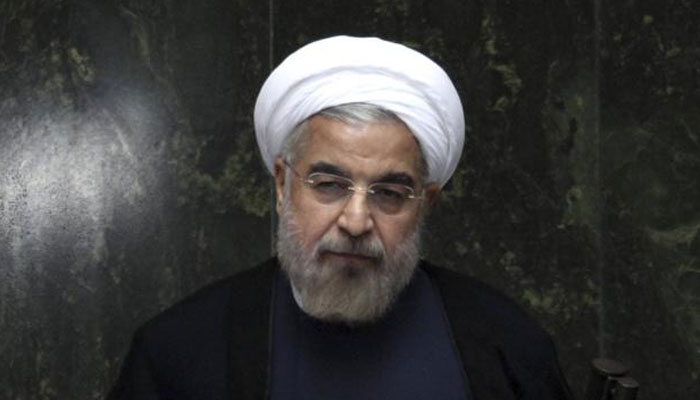-
Tips for becoming a good boxer - November 6, 2020
-
7 expert tips for making your hens night a memorable one - November 6, 2020
-
5 reasons to host your Christmas party on a cruise boat - November 6, 2020
-
What to do when you’re charged with a crime - November 6, 2020
-
Should you get one or multiple dogs? Here’s all you need to know - November 3, 2020
-
A Guide: How to Build Your Very Own Magic Mirror - February 14, 2019
-
Our Top Inspirational Baseball Stars - November 24, 2018
-
Five Tech Tools That Will Help You Turn Your Blog into a Business - November 24, 2018
-
How to Indulge on Vacation without Expanding Your Waist - November 9, 2018
-
5 Strategies for Businesses to Appeal to Today’s Increasingly Mobile-Crazed Customers - November 9, 2018
Blow for Iran’s hardliners as reformists win key seats in Assembly
Final election results are expected by Tuesday.
Advertisement
More than 90 percent of the votes have been counted and List of Hope, proponents of President Hassan Rouhani, appears likely to take all 30 parliamentary seats.
But many analysts are skeptical that the reformists’ electoral success – deemed by many as a blow to the Republic’s hardliners – was as significant or decisive as it seems.
The main conservative list secured 103 MPs, reformists and moderates from the List of Hope 95, and Independents 14.
However, despite the gains by Rouhani and his allies, the conservatives remain in power overall due to the two-tier system of clerical and republican rule.
While gains by moderates and reformists in Friday’s polls were most evident in capital Tehran, the sheer scale of the advances there suggests a legislature friendlier to pragmatist Rowhani has emerged as a distinct possibility.
Moderates also won a 59 percent majority in the Assembly of Experts, an 88-member body which will choose the successor to Ayatollah Ali Khamenei, who has been Iran’s top decision-maker since 1989. Ayatollah Ali Khamenei, the current leader, and Rafsanjani, who was not allowed to run for president in 2013, have been at odds in recent years.
Rouhani, who came in third in the Tehran vote for the Assembly of Experts, also issued a statement praising the elections.
Iran, an Islamic republic since a 1979 revolution toppled the pro-Western monarchy of Shah Mohammad Reza Pahlavi, has some institutions and many officials appointed by the supreme leader, but parliament and the Assembly of Experts are elected directly by the people. Two staunch hard-liners – Ayatollah Mohammad Yazdi, the current head of the assembly, and Mohammad Taqi Mesbah Yazdi, the spiritual mentor of hard-liners – were not re-elected.
The World Economic Forum, citing several economic analysts, said the reformist candidates’ win opens the way for changes to economic policy that will boost foreign investment and trade with the West.
The outgoing parliament had acted as a brake on Mr Rouhani’s plans to strengthen the private sector, tackle corruption and welcome foreign investors. He has been the most potent force to oppose democratic reforms and disqualify reformist candidates from the parliamentary balloting and also the clerical assembly vote. NPR’s Peter Kenyon was in Tehran for the vote and has this report.
Before the elections, he faced sharp criticism from members of parliament for deals such as Iran’s January agreement to buy 118 Airbus jets worth $27 billion at list prices, and a venture between Iran Khodro and France’s Peugeot to build cars.
Iranian media is banned from mentioning Khatami’s name or publishing his pictures.
Democracy in Iran is very different to that practised in the West, but such debates show that far from being a rigid theocracy there are checks and balances that make Iran a bright spot in the general gloom that covers much of West Asia today. “People’s vote is limited to the responsibility they have been given in the constitution”, Shariatmadari wrote.
He said that the policy for privatizing auto making industry is aimed at creating competition which will lead to lower prices and enhancing quality, ILNA news agency reported.
Advertisement
Results for Tehran province, which is the country’s most populous, showed a sweep by reformists and moderates of all its 30 parliamentary seats. The number of women nearly doubled, and younger candidates also won more seats.





























